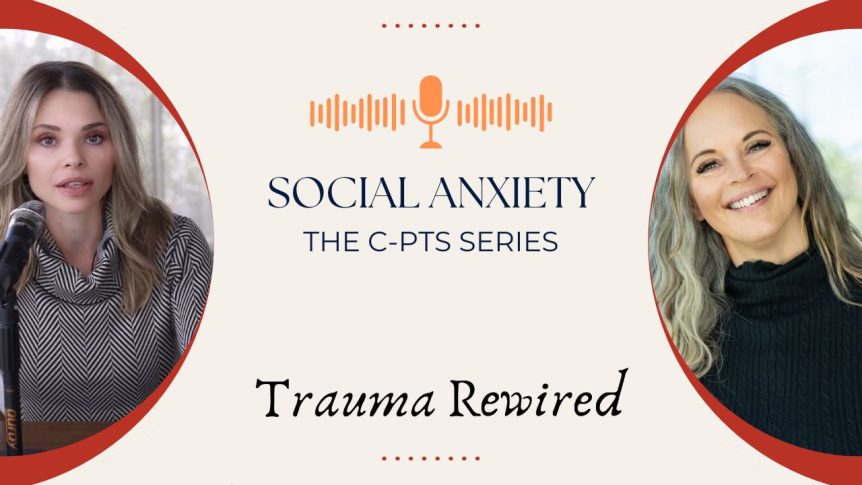The term social anxiety gets tossed around a lot these days, however individuals with CPTS who experience social anxiety feel its effects on a visceral level. It can be highly debilitating and can affect the way we relate and connect to others, when the need for connection is at the very core of what makes us human.
Knowing if you actually have social anxiety can be tricky, especially if there are socially acceptable coping mechanisms like overconsumption of substances involved. The proof is in the nervous system outputs, such as migraines, pain, exhaustion, or binge eating, after every social event. As well as, if these outputs cause you to refrain from being in social settings all together. At these times, it’s important to reflect on whether you’re genuinely comfortable in social situations or if social anxiety may be at play.
In today’s episode, Elisabeth and Jennifer explore the world of social anxiety, specifically what signs in your nervous system to look out for if you suspect you have social anxiety, the difference between social anxiety and being socially awkward, the role substance use plays, how your attachment style can indicate your level of social anxiety, and how to repattern the nervous system using NSI tools to overcome social anxiety, and much more.
As humans, we need to connect to others, and we need relationships to thrive. Social anxiety can impede these very human needs, however there is a way around it. It is possible to change how your nervous system takes in information, and change the way it reacts to that information, using simple tools to rewire and regulate.
Tune in to hear how and more!
Topics discussed in this episode:
- What is social anxiety?
- The nervous system outputs associated with social anxiety
- Substance use and social anxiety
- How the inner critic and toxic shame shows up in social anxiety
- What is hypervigilance?
- Physiological reasons why stress in social situations can cause protective outputs
- How ADHD and social anxiety overlap
- How attachment styles are related to social anxiety
- Repatterning the nervous system to experience new outputs using NSI
If you would like to WATCH the episode and/or have closed captions, check out our Trauma Rewired YOUTUBE channel!
If you need access to transcripts of this episode, you can find that HERE on Apple Podcasts.

